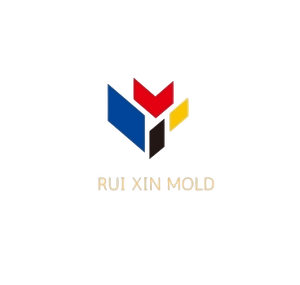Recent Posts
Tags

Plastic Injection Molding Services
Plastic injection molding services involve the manufacturing process of producing plastic parts by injecting molten plastic material into a mold cavity. These services cater to various industries, including automotive, electronics, medical, consumer goods, and packaging, delivering high-quality, precision-engineered plastic components in large volumes.
Service Scope
- Custom Plastic Injection Molding: Tailored solutions based on specific part designs and requirements.
- Prototype Injection Molding: Quick production of sample parts to validate designs before mass production.
- Overmolding: Combines multiple materials to create parts with enhanced properties.
- Insert Molding: Embeds metal or other inserts within the molded part.
- High-Volume Production: Efficient production for millions of identical parts with consistent quality.





Production Details
- Design and Development:
- CAD modeling and DFM (Design for Manufacturability) analysis to optimize part and mold design.
- Mold Making:
- Utilizing materials like hardened steel, aluminum, or hybrid molds for durability and cost-efficiency.
- CNC machining and EDM techniques for precision mold fabrication.
- Injection Molding Process:
- Material Selection: Thermoplastics such as ABS, PC, POM, PP, or high-performance materials like PEEK.
- Molding Parameters: Optimized temperature, pressure, and cooling cycles for quality consistency.
- Cycle Time: Ranges from a few seconds to minutes, depending on part complexity.
- Secondary Operations:
- Surface finishing, painting, ultrasonic welding, and assembly if required.

Thermoplastics:
- ABS: Durable and impact-resistant, commonly used in automotive and electronics.
- PC: Transparent and high-strength material for lenses and housings.
- Nylon (PA): Tough, wear-resistant, suitable for gears and mechanical parts.
- PP: Lightweight, chemical-resistant, ideal for packaging and consumer products.
- PEEK: High-performance plastic for demanding environments.
Thermosets: Used for parts requiring heat resistance and dimensional stability.

Applications
- Automotive: Dashboards, trims, connectors, and under-the-hood components.
- Medical: Surgical instruments, housings, and disposable medical devices.
- Consumer Goods: Toys, kitchenware, and electronic enclosures.
- Electronics: Housings, connectors, and insulating components.
- Packaging: Caps, closures, and containers for food and beverages.

Features
- Scalability: Cost-effective for both low-volume and high-volume production.
- Design Flexibility: Supports complex geometries, thin walls, and undercuts.
- Precision: Ensures tight tolerances and consistent dimensions.
- Speed: Fast cycle times for efficient production.
- Sustainability: Options for recyclable materials and reduced waste production.

- .Dongguan Ruixin Precision Mold Company specializes in manufacturing high-quality injection mold components, including Mold Cavities, Mold Sliders, Mold Inserts, Mold Lifters, Guide Bushings, and more. With years of expertise, we deliver precision-engineered solutions tailored to meet the demands of modern industrial and manufacturing applications. Our commitment to quality, innovation, and customer satisfaction ensures that every component we produce enhances efficiency and product performance. Trusted by clients worldwide, we pride ourselves on reliability and attention to detail, making us a preferred partner in the precision mold industry
China CNC Precision Machining Factory
- At RUIXIN Precision Mold Company, we understand that every project has unique quality requirements. That’s why we offer a range of inspection services to ensure your parts meet the highest standards of precision and performance. Our inspection services can be tailored to your project’s needs—giving you the flexibility and confidence you deserve.

- Our Inspection Services:
1.Standard Inspection
2. Standard Inspection with Dimensional Report
3. CMM Inspection with Dimensional Report
4. First Article Inspection Report (per AS9102)
5.Source Inspection
6.Additive Part Inspections - Custom Inspection
If your project demands specific inspection requirements, we’ve got you covered. Our Custom Inspection option allows for additional services such as: - Non-destructive testing
Serialization
Custom sampling plans
Use of your provided inspection datasheets
At RUIXIN, your quality standards are our priority. We’re committed to delivering accurate, reliable inspection results that align with your project requirements.
What is the minimum order quantity for plastic injection molding?
How long does it take to create the injection mold?
What is the cost of plastic injection molding services?
Can multiple materials be used in one part?
What are common defects in injection molding, and how are they addressed?
Advantages and Challenges of Plastic Injection Molding

Advantages
High Efficiency and Production Speed
- Plastic injection molding is highly efficient once the molds are designed and manufactured.
- Large quantities of parts can be produced in a short time, making it ideal for mass production.
Complex Part Design
- The process allows for intricate and detailed designs with high precision.
- Complex geometries, including undercuts and threads, can be molded without extensive post-processing.
Material Variety
- A wide range of thermoplastics, thermosets, and elastomers can be used, offering flexibility in choosing materials with specific properties (e.g., durability, heat resistance).
Consistent Quality
- Injection molding delivers consistent, repeatable parts with minimal variation, crucial for industries requiring tight tolerances.
Cost-Effectiveness for Large Volumes
- Although initial tooling costs are high, the per-unit cost decreases significantly with high production volumes.
Low Waste Generation
- The process generates minimal material waste, and excess material from sprues and runners can often be recycled.
Enhanced Product Strength
- Fillers can be added to the plastic to improve strength and durability.
Challenges
High Initial Tooling Costs
- The upfront cost of designing and manufacturing molds is significant, making it less ideal for small production runs.
Design Constraints
- Although capable of producing complex parts, designs must adhere to certain limitations, such as maintaining uniform wall thickness to avoid defects like warping.
Material Selection Complexity
- Selecting the right plastic material can be challenging as each material has specific properties and behaviors during molding.
Long Lead Times for Mold Creation
- Developing and refining molds can take weeks or months, delaying production timelines.
Defects and Troubleshooting
- Issues like sink marks, weld lines, or flash can occur if the process parameters or mold designs are not optimized.
Size Limitations
- The size of the part is limited by the capacity of the injection molding machine.
Environmental Concerns
- While waste is minimal, the use of petroleum-based plastics and the energy-intensive nature of the process can raise environmental sustainability concerns





